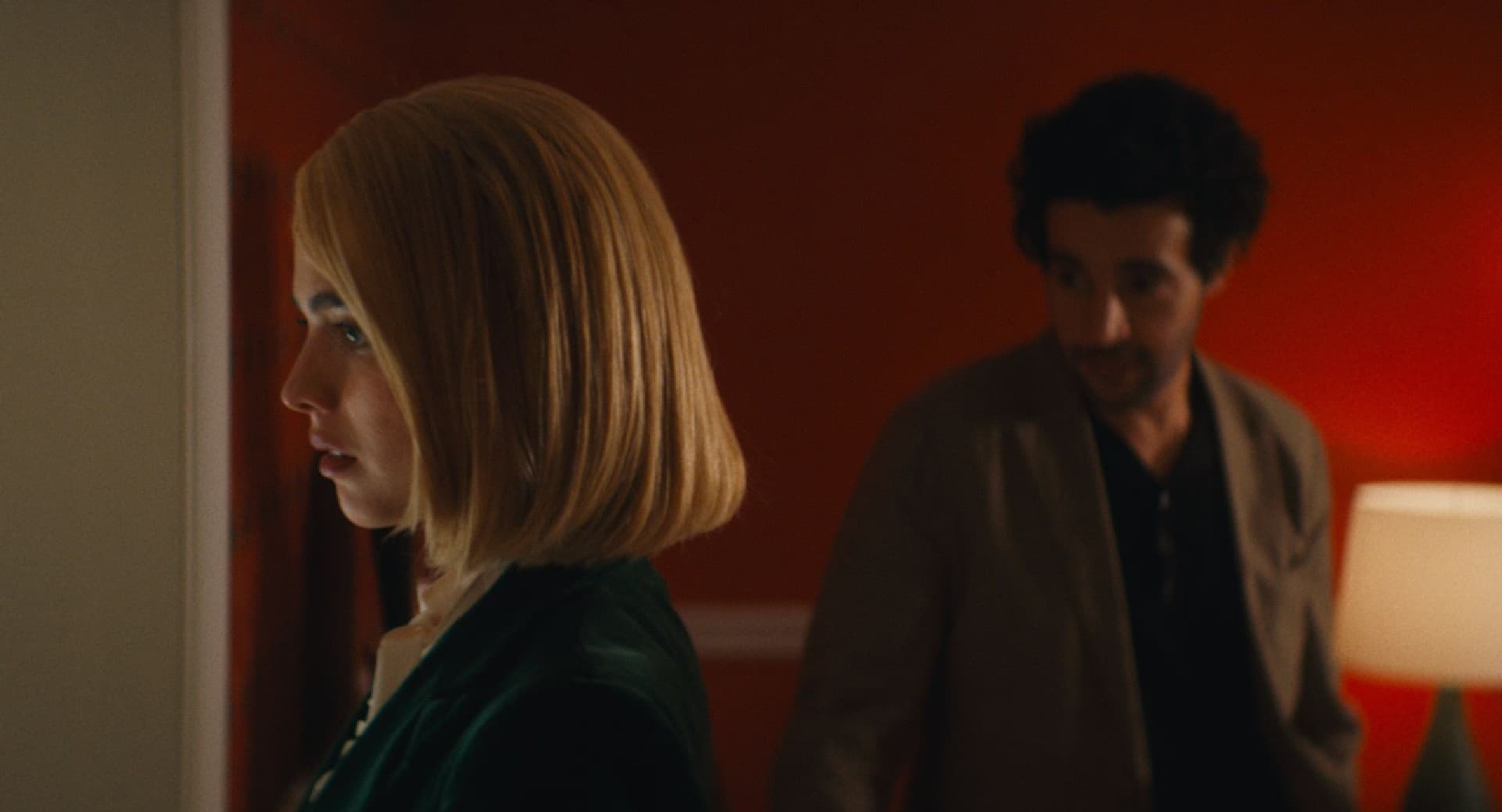Confined to a claustrophobic hotel room, the heir to a hotel empire and the dominatrix who has primed him for success become locked in a battle of wits and wills as he tries to end his relationship with her.
Sanctuary – Film Review
Published June 22, 2023

From the very beginning, the audience is introduced to the visually striking and opulent setting of the hotel. The lavish interiors and grandiose architecture serve as a metaphorical stage for the power play that unfolds between Hal and Rebecca. The cinematography by the talented director of photography captures the hotel’s luxurious ambiance, juxtaposing it with the underlying tension that permeates the characters’ interactions.
The performances of the two lead actors Margaret Qualley and Christopher Abbott are noteworthy and bring depth and authenticity to their respective roles. Hal, portrayed by the emotionally charged Abbott, captures the internal struggle of a man torn between societal expectations and his forbidden desires. His portrayal of a conflicted individual grappling with his inherited responsibilities and his relationship with Rebecca is both nuanced and captivating.
Rebecca, played by the immensely talented Qualley, embodies the enigmatic dominatrix with a commanding presence. She exudes confidence and control in every scene, but beneath her composed facade lies a vulnerability that is gradually revealed as the story progresses. The chemistry between the two leads is palpable, adding another layer of intensity to their complex relationship.
The screenplay, penned by Micah Bloomberg, intricately weaves together the psychological battle between Hal and Rebecca. The dialogue is sharp and filled with subtext, reflecting the power dynamics at play. Each exchange is carefully constructed, revealing glimpses of the characters’ true motivations and desires. The pacing of the film allows for the gradual unfolding of the narrative, building tension and suspense as the night progresses.
One of the film’s notable strengths lies in its exploration of themes of control and power. The dynamic between Hal and Rebecca serves as a microcosm of the power struggles that exist in relationships. Their interactions are filled with moments of manipulation, dominance, and submission, showcasing the intricate dance between the two characters. Wigon skillfully navigates these themes, never falling into gratuitous or exploitative territory but instead presenting a nuanced portrayal of the complexities of human connection.
The visual and auditory elements of Sanctuary enhance the film’s atmosphere and emotional impact. The cinematography captures the intimate moments between Hal and Rebecca with a keen eye, highlighting their emotional states and creating a sense of intimacy. The film’s score, composed by a talented musician, adds another layer of depth, heightening the tension and accentuating the emotional beats of the story.
However, despite its many strengths, Sanctuary does have its flaws. The narrative occasionally feels constrained within the hotel’s walls, and the limited scope of the setting may leave some viewers wanting more. Additionally, while the slow-burning tension is effective in building suspense, there are moments where the pacing feels overly deliberate, potentially testing the patience of some audience members.
Sanctuary is a thought-provoking exploration of power dynamics, desire, and vulnerability within a clandestine relationship. Wigon’s masterful direction, combined with the exceptional performances of the lead actors, creates a captivating and tense atmosphere throughout the film. The film’s visual and auditory elements further enhance its impact, immersing the audience in the intricate world of Hal and Rebecca. While the narrative may feel confined at times and the pacing deliberate, Sanctuary remains a compelling and memorable cinematic experience that leaves viewers contemplating the complexities of human connection long after the credits roll.
